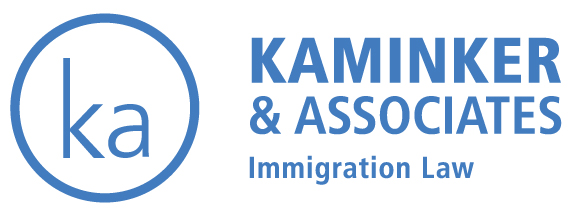CANADIAN BORDER: Immigrating to Canada as a Foreign Worker? Know What’s Required Before You Arrive
In our last article, Crossing Into Canada For Work, we talked about some of the common challenges people face when they cross the border to work in Canada. In this article, we will explain some of the key things you need to know when immigrating to Canada as a foreign worker.
Professionals need to understand what is required of them and their employer before they arrive in Canada. This process takes time, and getting a valid work permit relies on having the right documentation in place in advance. To help you navigate the process, it is always best to consult with a licensed immigration lawyer when preparing to come to Canada for work.
The Importance of a Labour Market Impact Assessment
A Labour Market Impact Assessment (LMIA) is a document from Employment and Social Development Canada (ESDC) stating that an employer can hire a foreign worker. It verifies that there is a need for a temporary worker and that no Canadians or Permanent Residents are available to do the job. It is designed to protect both Canada’s domestic job market and the temporary foreign worker while they are in Canada.
It is the employer’s responsibility to apply for, and receive, a positive LMIA prior to hiring a foreign worker. Some of the factors that will be considered during the approval process include:
- The wage of the worker
- The type of work they are doing
- Whether there is a shortage of that particular skill in the market
- Whether the foreign worker will help create or retain jobs in Canada
- Whether the employer has undertaken proper recruitment efforts in order to fill the position in Canada.
This last point is very important. A job must be posted in Canada for at least four weeks, and the employer must demonstrate that they are unable to hire a Canadian for the position. ESDC has very strict requirements on the wage to be offered to the foreign worker and the content of the advertisement. Failure to follow these requirements can result in the refusal of the LMIA application.
So, why does this matter to you? Because even though it is the company’s responsibility to get the LMIA, your work permit depends on having a positive LMIA. To apply for a work permit, you need a job offer letter, a contract, a copy of the LMIA, and the LMIA number. Without a work permit, you cannot legally work in Canada. This is why it’s so important to be prepared and start the process well in advance of when you intend on commencing employment in Canada.
What Are Canadian Immigration Exemptions?
Depending on the type of work you do and the country of origin, you may not need an LMIA in order to work in Canada. There area number of different exemptions and the factors for qualifying for an exemption can change, so you should consult an immigration lawyer to determine which one is best suited for your particular circumstance.
For example, Canada has agreements with some countries for the transfer of workers for certain types of work. If you meet the qualifications set out under these agreements, you do not need an LMIA. The North American Free Trade Agreement (NAFTA) is the most well known of these, but Canada also has agreements with other countries.
Intra-company transfers, where a foreign employee is moving from a subsidiary to a Canadian office temporarily, may also not require an LMIA. This applies to executive, managerial, or specialized knowledge positions. Foreign workers are also exempt in some cases if they are a spouse or a dependant of someone who is already a foreign worker.
Finally, in some cases you may not require a work permit at all. One example is if you are organizing a convention but are not doing any work at the convention itself. Similarly, business visitors who will not be entering the Canadian labour market do not require a permit. The Government of Canada has a complete list of work that does not necessarily require a work permit which you should review before arriving.
These are just some examples of the exemptions which may apply to your situation. Navigating them is tricky, and not fully understanding them could result in you working in Canada illegally.
Be Prepared Before Arriving In Canada
The simple advice to anyone who is planning on working in Canada is to be prepared in advance. Work with your employer, and an immigration lawyer, to ensure you have met all of the requirements and have properly and completely filled in any documentation required. Remember that this process takes time, and doing it incorrectly could mean that you are turned away at the border. This can negatively impact you and your business, which is why it’s always best to have everything ready before arriving in Canada.
Connect with Hart Kaminker, Principal, Kaminker & Associates Immigration Law on LinkedIn.




Leave a Reply